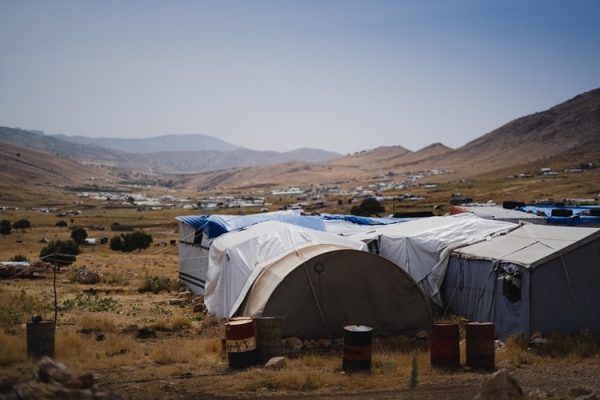The gradual withdrawal of the joint United Nations-African Union (UNAMID) peacekeeping forces from Darfur since December has been met with a surge of violence, experts say. 20,000 Sudanese troops were promised to take their place, but they have not yet arrived.
Thirty-five-year-old Khamisa Juma Ishag Abaker has been displaced after clashes in January left tens of thousands of people homeless and hundreds of people dead. Ms Abaker attributes the attacks to the Rapid Support Forces (RSF), a paramilitary group tasked by the government with keeping civilians safe. Ms Abaker now lives in cramped conditions in El Geneina, the capital of West Darfur, where 80 government sites house at least 50,000 people. Elliot Vhurumuku of the UN's World Food Programme (WFP) has warned that the clashes were heightening food insecurity and preventing WFP from moving commodities from its warehouses to the population in El Geneina and outside.
The war in Darfur, which began in 2003 following a revolt by ethnic African rebels against former President Omar al-Bashir’s Arab-dominated government, led to hundreds of thousands of deaths. Al-Bashir armed local Arab militias, known as the Janjaweed, who targeted non-Arab tribes accused of supporting the rebels.
Al-Bashir, now awaiting transfer to the International Criminal Court, was ousted from government in 2019 and the new military-civilian transitional government signed a peace agreement with local rebel groups. While residents believed it was the beginning of a new period of peace, violence began in December 2019, resulting in more than 150,000 people being displaced, according to data from the International Organization for Migration. One of the prerequisites for peace was a full integration of the RSF into the military, but its commander who is also the country’s Vice President, Mohamed Hamdan "Hemeti" Dagolo, has publicly refused to unify with the Sudanese armed forces.
Sources:
https://www.bbc.com/news/world-africa-57899843
Author: Irina Kovacevic; Editor: Catherine Meunier




